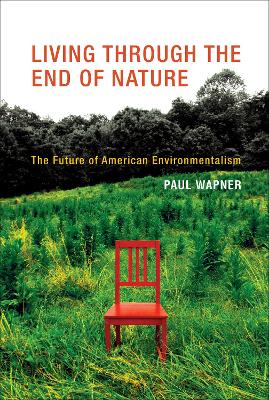The MIT Press
1 total work
How environmentalism can reinvent itself in a postnature age: a proposal for navigating between naive naturalism and technological arrogance.
Environmentalists have always worked to protect the wildness of nature but now must find a new direction. We have so tamed, colonized, and contaminated the natural world that safeguarding it from humans is no longer an option. Humanity's imprint is now everywhere and all efforts to "preserve" nature require extensive human intervention. At the same time, we are repeatedly told that there is no such thing as nature itself-only our own conceptions of it. One person's endangered species is another's dinner or source of income. In Living Through the End of Nature, Paul Wapner probes the meaning of environmentalism in a postnature age.
Wapner argues that we can neither go back to a preindustrial Elysium nor forward to a technological utopia. He proposes a third way that takes seriously the breached boundary between humans and nature and charts a co-evolutionary path in which environmentalists exploit the tension between naturalism and mastery to build a more sustainable, ecologically vibrant, and socially just world.
Beautifully written and thoughtfully argued, Living Through the End of Nature provides a powerful vision for environmentalism's future
